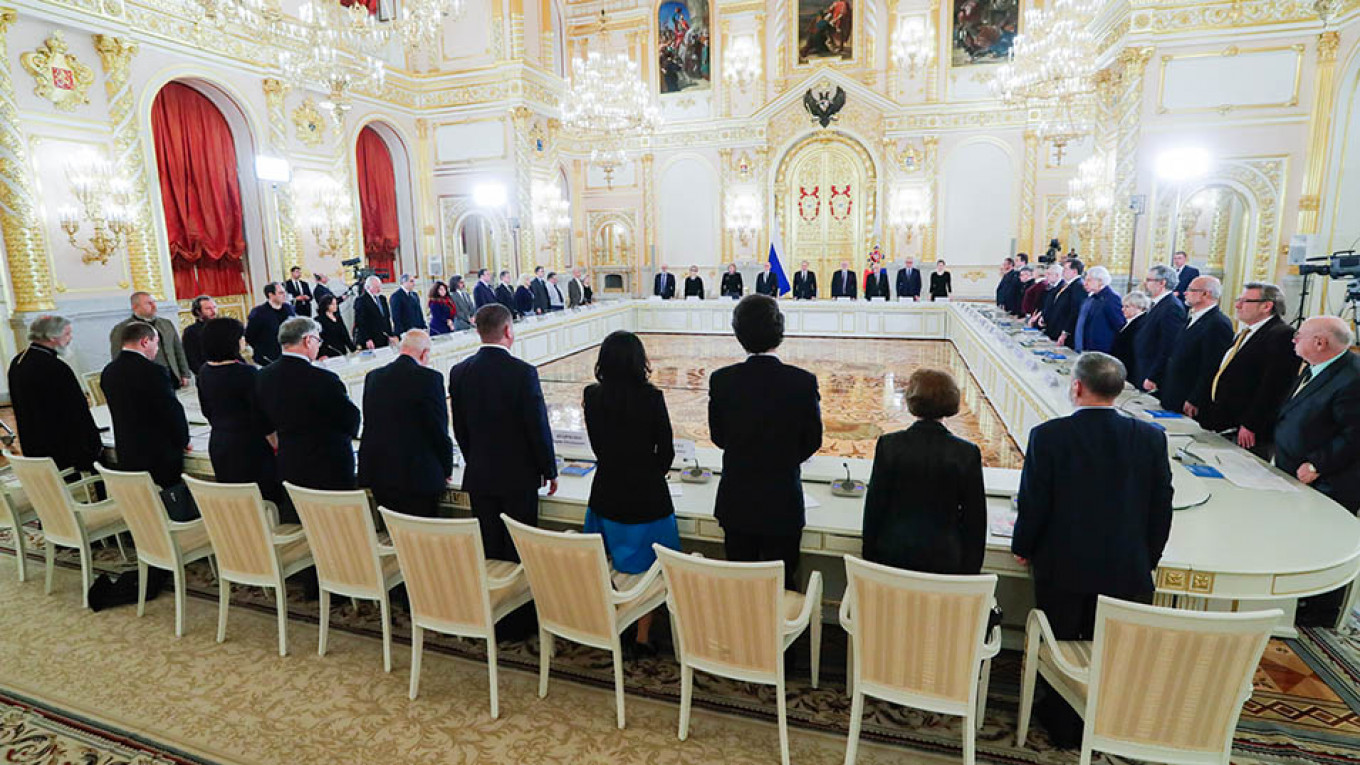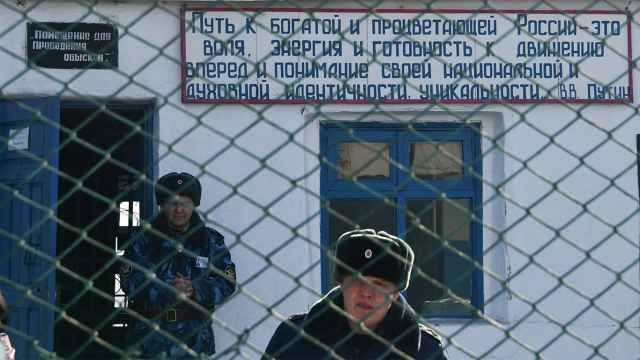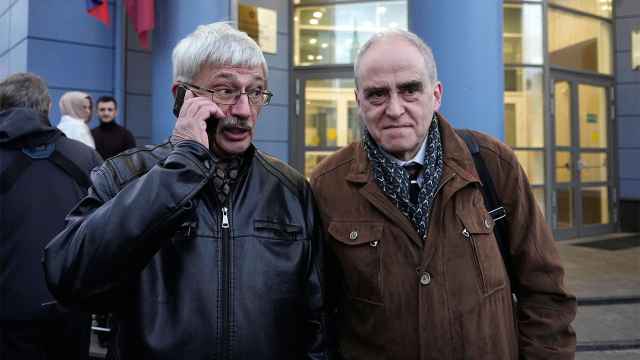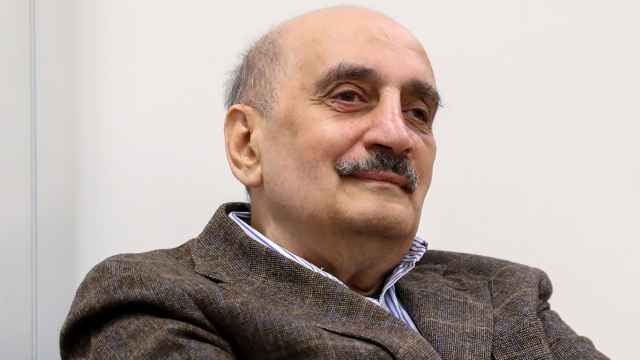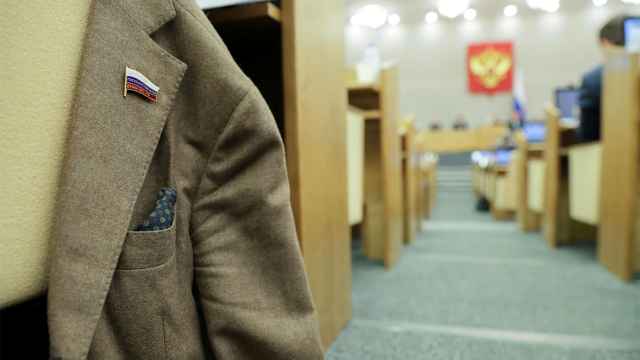The Kremlin has dismissed Mikhail Fedotov as head of the presidential Human Rights Council (HRC), alongside Pavel Chikov, head of the Agora human rights group; the political analyst Ekaterina Schulmann; the electoral law specialist Ilya Shablinsky; and NGO activist Yevgeny Bobrov. The replacement of these council members — not the most loyal people to the authorities, especially Chikov — with ultra-loyalists is no routine reshuffle, but a clear statement.
The old-school democrat Fedotov’s replacement, Fadeyev, is the former head of the Public Chamber, a state oversight body, and a member of the ruling United Russia party, as well as the former editor in chief of the Kremlin-loyal media holding Expert, and was until recently a presenter on the state-owned Channel One.
The ousted members, on the other hand, have all been critical of the authorities. Schulmann visited police stations to meet with people who had been detained at recent protests in Moscow, produced an independent analysis of the situation, and criticized the authorities in interviews with the media. Chikov and his human rights group Agora are devoted to defending the rights of prisoners and people who have suffered at the hands of the security services. This summer, he was the first lawyer to represent Ivan Golunov, a journalist arrested on trumped-up charges in a high-profile case. Shablinsky had continually raised the issue of electoral violations. Bobrov had gone to the Arkhangelsk region village of Shies, where residents are protesting against plans to locate a landfill site, and had criticized both the federal and regional governments.
Most importantly, the council members had signed a letter calling on the authorities to register opposition candidates for the Moscow city parliament elections: the same issue that had sparked the protests in Moscow (the letter was published under the name of the electoral rights commission headed by Shablinsky). A letter was sent on behalf of the entire human rights council to the Moscow prosecutor’s office, requesting a reappraisal of the sentences handed out to Konstantin Kotov and Pavel Ustinov over the Moscow protests. Council members also wanted to talk about the Moscow protest cases and Moscow parliamentary election violations at their next meeting with the president: despite the technocratic nature of his loyalty to the authorities, Fedotov was a rights activist, and understood that these issues needed to be addressed.
Now all of these uncomfortable topics will be avoided at the council’s upcoming meeting with Russian President Vladimir Putin. The vacant seats will be taken up by people who slot in nicely to the power vertical. Also coming over from the Public Chamber is Alexander Tochenov, who organized election monitoring on behalf of the chamber, whose representatives never recorded any serious violations. Joining him is Kirill Vyshinskiy, the former head of the Ukrainian bureau of Russia’s state-run news service RIA Novosti, who has already announced that as a former political prisoner of the Ukrainian authorities, he plans to focus on defending the rights of Russian journalists working abroad.
For Kremlin officials, and in particular for the security services, this summer’s protests in Moscow are mass riots that are a danger to the state, and those involved must be punished. Prosecuting the protesters is a lesson for those still unsure about whether taking to the streets is a good idea or not. The opinions of some members of the Human Rights Council who don’t consider the Moscow protests to be mass riots are superfluous to requirements.
The protests by tens of thousands of people have become a major headache for the Kremlin: many Russians have learned of the protests in Moscow, and the capital itself has shown itself to be somewhat sympathetic to the protesters. Support for them is unacceptable to the power vertical, and on such issues, the public position of anyone with any connection whatsoever to the vertical must be unambiguous. If it differs from the general viewpoint, then it should not be spoken of at all, or severely downplayed. In the case of the Moscow protests, the HRC failed to do this.
It cannot be said that the HRC has always been at cross purposes with the Kremlin. Last year, the TV presenter Vladimir Pozner quit the council precisely because it was too accommodating: he called it a “decorative body” that had not made a single significant decision. Another television presenter, Maxim Shevchenko, had previously done the same thing.
At the same time, for rights defenders like Chikov, or the head of the Committee for the Prevention of Torture NGO, Igor Kalyapin, who is still currently a member of the council, the status of HRC member was not without value: it meant they could bring up specific issues at their meetings with the president, and it also helped in their dealings with the security services and officials. After all, it’s one thing when a rights activist tries to talk to you, and quite another when that person is in direct contact with Putin.
The overall image of the council as fairly innocuous but not entirely obedient or voiceless did not damage that status. But questions about the council’s image are bound to be raised again following the changes to its lineup. This is most likely what Schulmann had in mind when she called her dismissal “a weight off my mind.” Now she doesn’t need to make the moral decision of whether to resign or have to constantly explain the pronouncements of the council’s new head, which are far from ideal from a human rights viewpoint.
Previous council members had criticized the authorities before, over issues including the putting down of the Dissenters’ Marches, and the sentencing of Pussy Riot. None of that particularly bothered the Kremlin: it was considered that these events were of no concern to most Russians, who were perfectly happy with how things were going in the country. But as soon as the recent protests grew bigger, the council was reminded that it is first a presidential council, and only then a human rights council.
Fadeyev has already told the Kommersant newspaper: “Without in any way belittling the importance of political rights and freedoms, I believe that social rights are not visible enough in the public and political field.”
How the Public Chamber that he headed until recently fought for “social rights” was demonstrated in the example of Shies, the Arkhangelsk region village battling against landfill construction. The chamber’s representatives helped to organize an ecology forum in Arkhangelsk, talked about a “dialogue with residents,” and soon after that, the biggest unsanctioned protest rally so far took place in the regional center. That was the end of the Public Chamber’s mission to resolve the unrest in Shies.
It looks as though the presidential human rights protection system from now on will be to correct particularly odious actions by the authorities, when the system accepts that it has made a serious mistake: when a completely innocent person is being prosecuted, and people begin to speak out for that person en masse, including high-profile people. The system will amend incidents that post a serious threat to its image, while declining to notice those that are less of a risk. This activity can be summed up as the simultaneous defense of both human rights and the state’s image.
This article was first published by the Carnegie Moscow Center.
A Message from The Moscow Times:
Dear readers,
We are facing unprecedented challenges. Russia's Prosecutor General's Office has designated The Moscow Times as an "undesirable" organization, criminalizing our work and putting our staff at risk of prosecution. This follows our earlier unjust labeling as a "foreign agent."
These actions are direct attempts to silence independent journalism in Russia. The authorities claim our work "discredits the decisions of the Russian leadership." We see things differently: we strive to provide accurate, unbiased reporting on Russia.
We, the journalists of The Moscow Times, refuse to be silenced. But to continue our work, we need your help.
Your support, no matter how small, makes a world of difference. If you can, please support us monthly starting from just $2. It's quick to set up, and every contribution makes a significant impact.
By supporting The Moscow Times, you're defending open, independent journalism in the face of repression. Thank you for standing with us.
Remind me later.



